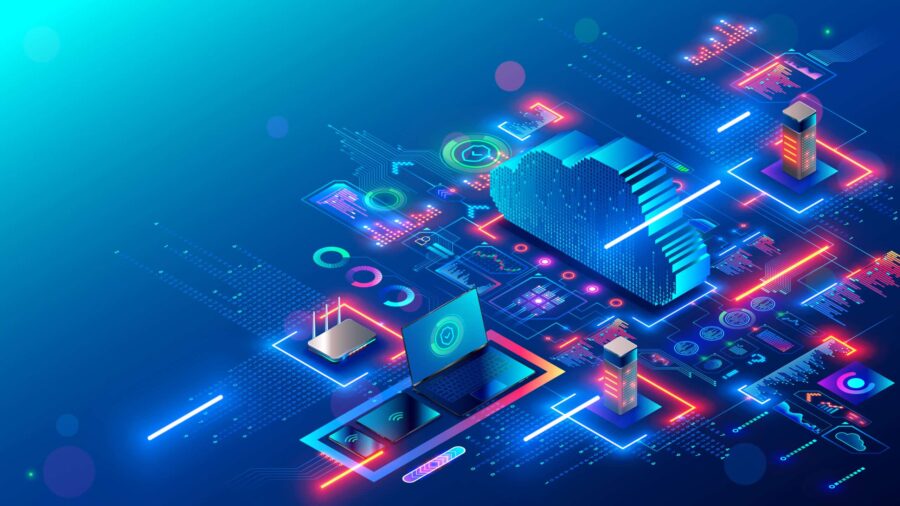Blog

Safeguarding the Digital Frontier: A Deep Dive into IT Security
In today’s interconnected world, information technology (IT) has become the backbone of modern business operations, communication, and daily life. However, this digital transformation comes with a pressing concern: the need for robust IT security. As cyber threats continue to evolve and grow in complexity, it’s imperative for individuals and organizations to prioritize IT security to protect sensitive data, ensure operational continuity, and maintain trust in the digital landscape.
The digital realm is no longer a playground solely for tech enthusiasts and professionals; it’s a battlefield where cybercriminals continuously devise new ways to exploit vulnerabilities. From ransomware attacks that hold data hostage to phishing scams that manipulate human psychology, the threats are multifaceted and ever-evolving.
The Importance of IT Security
-
Data Protection:
One of the most significant aspects of IT security is safeguarding sensitive data. This includes personally identifying information such as intellectual property or financial data.Breaches can lead to identity theft, financial loss, and reputational damage, making data protection a top priority.
-
Business Continuity:
Modern businesses heavily rely on digital infrastructure. A cyberattack that disrupts operations can lead to financial losses and a tarnished reputation. IT security measures help ensure business continuity and minimize downtime.
-
Regulatory Compliance:
Many industries are subject to strict regulations concerning data protection and cybersecurity. Business that do not follow the regulations may face legal action or large fines.
-
Trust and Reputation:
Maintaining the trust of customers, clients, and partners is essential for any organization. A breach of IT security can erode trust and damage a company’s reputation, leading to long-term consequences.
Key Components of IT Security
-
Network Security:
Protecting the network infrastructure is crucial. Firewalls, intrusion detection systems, and intrusion prevention systems help defend against unauthorized access and malware.
-
Endpoint Security:
With the rise of remote work and mobile devices, securing endpoints like laptops, smartphones, and tablets is paramount. Endpoint protection software and encryption help mitigate risks.
-
Data Encryption:
Encrypting sensitive data ensures that even if it’s intercepted, unauthorized parties can’t read or use it. This is particularly important when transmitting data over the internet.
-
Access Control:
Implementing strong access controls ensures that only authorized personnel can access certain systems or data. Multi-factor authentication and role-based access are effective strategies.
-
Security Awareness Training:
Human error is a significant factor in many security breaches. Regular training and education for employees help them recognize phishing attempts, social engineering, and other common threats.
-
Incident Response Plan:
No system is entirely immune to breaches. An incident response plan outlines how to detect, respond to, and recover from security incidents effectively.
Future Trends in IT Security
The field of IT security is ever-evolving, and staying ahead of emerging threats requires constant vigilance. Some future trends to watch include:
-
Artificial Intelligence (AI) and Machine Learning:
These technologies can be used to detect patterns and anomalies in large datasets, helping to identify potential security breaches.
-
Zero Trust Architecture:
Under this approach to security you start at a point of assuming, by default, that no person or protocol can be trusted. It enforces strict access controls and verification mechanisms.
-
IoT Security:
As the Internet of Things (IoT) continues to grow, securing interconnected devices will become increasingly important to prevent unauthorized access and data breaches.
Get in touch today!
In the digital age, IT security is not a luxury; it’s a necessity. Protecting data, systems, and networks from cyber threats is a shared responsibility that spans individuals, businesses, and governments. By investing in robust IT security measures, staying informed about the evolving threat landscape, and fostering a culture of cybersecurity awareness, we can collectively fortify the digital frontier and ensure a safer, more resilient future.
Beringer Technology Group, a leading Microsoft Partner specializing in Microsoft Dynamics 365 and CRM for Distribution also provides expert Managed IT Services, Backup and Disaster Recovery, Cloud Based Computing, Email Security Implementation and Training, Unified Communication Solutions, and Cybersecurity Risk Assessment.




